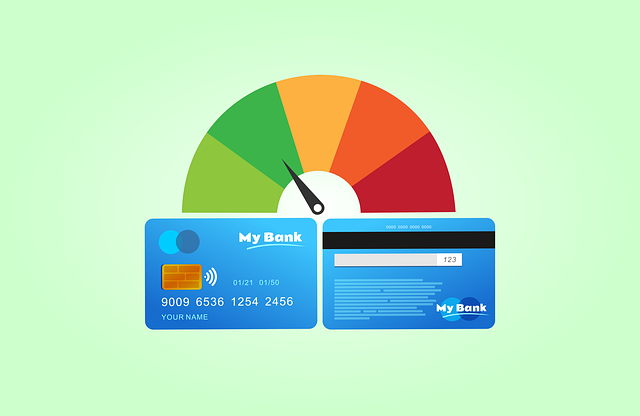Hey there! 👋
Are you an adult in South Korea looking to get a handle on your finances and maybe improve your credit score?
You’re in the right place! Your credit score might seem a bit mysterious, but it’s actually a super important number that affects a lot of things in your life, especially when you need money for big purchases like a house or a car.
Let’s break down what your Korean credit score is, how it’s calculated, and how you can make it work for you!
💪What Exactly IS a Credit Score?
🤔Think of your credit score as a report card for your financial responsibility.
It’s a number that tells lenders (like banks and credit card companies) how likely you are to pay back money you borrow.
The higher your score, the more trustworthy you look financially, and the better terms you’ll likely get on loans and credit cards.
In South Korea, personal credit scores are managed by credit bureaus like NICE Information Service and Korea Credit Bureau (KCB).
How is Your Korean Credit Score Calculated?
The Main Ingredients!
🍳Your credit score isn’t
just a random number! It’s calculated based on several factors from your financial history.
Understanding these factors is the first step to improving your score.
Here are the key things the credit bureaus look at:
* Payment History (Making Payments on Time!) ⏰
: This is HUGE! Paying your bills on time is probably the single most important factor.
This includes loan payments (like mortgages, car loans, personal loans), credit card bills, and even utility bills sometimes.
Late payments, defaults, or collections seriously hurt your score.
Paying on time shows you’re reliable.
* Outstanding Debt (How Much You Owe)
💰: This looks at the total amount of debt you have compared to your credit limits.
Using a large percentage of your available credit (this is called credit utilization ratio) can lower your score.
For example,
if you have a credit card with a ₩10 million limit and you’ve spent ₩8 million on it, your utilization is high (80%).
Keeping this number low (ideally below 30%) is better for your score.
It shows you’re not maxing out your credit.
* Length of Credit History (How Long You’ve Had Credit) 🗓️
: The longer you’ve responsibly managed credit, the better.
This includes the age of your oldest credit account, the age of your newest account, and the average age of all your accounts.
A longer history with good behavior shows a proven track record.
* New Credit (Opening New Accounts) ✨:
Applying for and opening several new credit accounts in a short period can slightly lower your score temporarily.
Why?
Because it can look like you might be having financial trouble and are desperately seeking credit.
It’s okay to open new accounts when needed, but try not to open too many at once.
* Types of Credit Used (Having Different Kinds of Credit) 🏦🚗💳:
Having a mix of different types of credit (like installment loans and revolving credit like credit cards) can be positive, as long as you manage them responsibly.
It shows you can handle different kinds of debt.These factors are weighted differently, with Payment History usually having the biggest impact.
Understanding Korean Credit Score Ranges and What They Mean 📊Korean credit scores are typically represented on a scale, often from 1 to 1000 points.
Credit bureaus group these scores into different ranges or tiers.
While the exact boundaries can vary slightly between bureaus, here’s a general idea:
* Tier 1-2 (Excellent): Scores usually in the 900-1000 range.
You have a fantastic credit history! 🎉
You’ll likely get approved for loans easily and get the best interest rates.
* Tier 3-4 (Good): Scores typically in the 800-900 range. Your credit is strong and healthy. You should still qualify for most loans and credit products with good terms. 👍
* Tier 5-6 (Average): Scores often in the 600-800 range. Your credit is okay, but there might be some areas for improvement. You might face slightly higher interest rates or need to put in a bit more effort to get loan approvals. 🤔
* Tier 7-8 (Below Average): Scores generally in the 400-600 range. Your credit needs attention. Getting approved for new credit might be difficult, and interest rates will likely be high.
😟 * Tier 9-10 (Poor): Scores typically below 400. You likely have significant issues in your credit history (like defaults). Getting any new credit will be very challenging.
😭Important Note: While the numerical score is key, lenders also look at other factors when deciding whether to approve you for a loan.What Your Score Range Says About You (Financially Speaking)
🗣️Let’s look at the characteristics often associated with each range:
* Excellent (Tier 1-2): You’re a lender’s dream! Banks and credit companies will likely offer you their best products and lowest interest rates. You have high chances of getting approved for mortgages, car loans, and high-limit credit cards. You’ve proven you’re a very low risk.
✨ * Good (Tier 3-4): You’re a reliable borrower. You’ll generally have no problem accessing most credit products. You might not always get the absolute lowest interest rate compared to someone in Tier 1, but you’ll still get very competitive offers. You show consistent good financial habits.
👍 * Average (Tier 5-6): Lenders will look more closely at your application. You might need to shop around more for loans or credit cards. Interest rates might be higher because you pose a slightly higher risk. There might be some minor negative marks on your report or a shorter history.
🤔 * Below Average (Tier 7-8): You will likely find it difficult to get approved for traditional loans or credit cards. If you are approved, the interest rates will be very high to compensate the lender for the higher risk.
You probably have some history of late payments or high debt utilization.
😟 * Poor (Tier 9-10): Access to traditional credit is extremely limited. You might need to explore alternative lending options (often with very high interest rates) or focus on rebuilding your credit through secured credit cards or credit-builder loans if available.
You have significant negative marks on your report.
😭Loans and Your Credit Score: A Close Relationship!
❤️Your credit score and your ability to get a loan are tightly linked. Here’s how:
* Approval Chances: A higher credit score significantly increases your chances of getting approved for a loan. Lenders see you as less risky. A low score makes approval much harder.
* Interest Rates: Your credit score directly impacts the interest rate you’ll pay on a loan. A high score qualifies you for lower interest rates, saving you potentially thousands or even millions of won over the life of the loan. A low score means higher interest rates, making borrowing much more expensive.
* Loan Limits: A good credit score can influence how much money lenders are willing to let you borrow.
* Other Terms: Your score can also affect other loan terms, like repayment periods or required down payments.
Basically, a good credit score is like having a golden key that unlocks better financial opportunities!
🔑Credit Management Honey Tips!
🍯🐝Now for the good stuff – how to improve and maintain a healthy credit score! These tips are especially for you if you’re looking to recover your credit:
* Pay ALL Bills On Time! 🗓️⏰ Seriously, this is number one. Set reminders, use auto-pay, do whatever you need to do to never miss a payment deadline for loans, credit cards,
utilities, etc. Even small late payments can hurt. * Reduce Your Credit Card Balance: 💳⬇️ Try to keep your credit card balances low compared to your credit limit (remember that credit utilization ratio!). Pay down your balances as much as possible each month. Paying in full is ideal!
* Avoid Opening Too Many New Accounts at Once: ✨
Hold off on applying for multiple new credit cards or loans in a short period. Spread them out if possible.
* Check Your Credit Report Regularly:
🕵️♀️ You can usually get your credit report from bureaus like NICE or KCB. Check it for errors! Sometimes mistakes happen, and fixing them can boost your score. Plus, seeing your report helps you understand where you stand.
* Keep Older Accounts Open (If They’re Positive):
🕰️ The length of your credit history matters. If you have an old credit card you rarely use but it has a good payment history, it might be better to keep it open than close it, as it contributes to the average age of your accounts.
* Limit Loan Guarantees (If Possible):
🤝 Be cautious about guaranteeing loans for others. If they fail to pay, it can negatively impact your credit score.
* Be Patient: 🌱 Improving your credit score takes time and consistent effort. Don’t get discouraged if you don’t see big changes overnight. Keep practicing good financial habits.Conclusion
✨Understanding your credit score is empowering. It’s not just a number; it’s a reflection of your financial health and a key that can open doors to better financial opportunities. By focusing on paying bills on time, managing your debt wisely, and following the “honey tips” above, you can work towards improving your credit score and building a more secure financial future in South Korea. You got this! 💪
#CreditScore #KoreaFinance #PersonalFinance #CreditManagement #FinancialHealth






